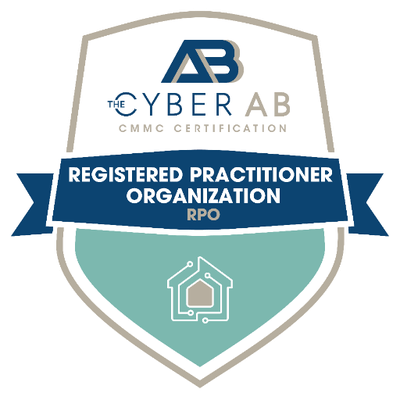Our privacy policy is located here.
Regulations and Compliance
See how risk-based Managed Detection & Response can help you with compliance — regardless of your industry
NYDFS Security Regulation FAQ
A CONVERSATION WITH RON PELLETIER, FOUNDER and CHIEF CUSTOMER OFFICER, PONDURANCE, AND RICHARD BORDEN, COUNSEL, WILLKIE FARR & GALLAGHER LLP
- The cyber regulation standards and if there are any commonalities
- What you need to do to meet SEC requirements
- The difference between privacy regulations and information security regulations
- What are the Department of Labor (DOL) guidelines, and how does it apply to cybersecurity
- How a cybersecurity provider can help you meet new security regulations
Insurance and Legal Partners
Pondurance works with legal and insurance firms, brokers and agents to help their clients improve their cybersecurity posture and reduce cybersecurity risks.
Reach out to us to learn more partners@pondurance.com
If you suspect you have an active breach, please contact us at 888-385-1720.

Keep Up With the Latest Blogs on Compliance and Regulations
Webinar
Reducing the Costs To Comply With CMMC

Successfully Navigating Through CMMC: What You Need to Know

Achieving CMMC 2.0 Compliance

Are you processing controlled unclassified information for Department of Defense clients and required to meet Defense Federal Acquisition Regulation Supplement requirements? Pondurance is here to help you achieve CMMC 2.0 compliance and better understand the gaps in your processes, capabilities, and practices.
Are You Looking for Specfic HIPAA Regulations?
Additional Resources
PCI DSS Compliance Made Simple by Pondurance
As part of Pondurance’s cyber risk and regulatory compliance assessment services, we offer a focused review of your IT systems environment to identify areas of risk and maturity as they relate to Payment Card Industry Data Security Standard (PCI DSS) compliance. READ HERE
Cybersecurity Compliance
Cybersecurity compliance is a crucial aspect of modern business operations—but, exactly what is cybersecurity compliance? This set of processes is designed to help ensure that organizations adhere to industry-specific regulations and guidelines. The main goal of compliance in cybersecurity is to protect sensitive data, maintain privacy, and prevent unauthorized access to critical systems. To achieve this objective, businesses must not only implement appropriate security measures but also regularly evaluate their effectiveness.
One of the most important aspects of cybersecurity, regulatory compliance is often a primary consideration. It is necessary for many industries subject to specific mandates such as the Health Insurance Portability and Accountability Act (HIPAA) or the General Data Protection Regulation (GDPR). These regulations aim to protect personal information from misuse or unauthorized disclosure while also providing guidance on how organizations should handle data breaches or security incidents. Cybersecurity and compliance often go hand-in-hand. Failure to comply with these directives can lead to severe financial penalties along with reputational damage.
One significant challenge organizations face when implementing a robust cybersecurity program lies in balancing the need for security with operational efficiency. Cybersecurity risk and compliance efforts must be continually reviewed and adjusted as new vulnerabilities emerge or technological advancements present additional threats.
Several obstacles stand to impede the effective management of cybersecurity challenges. A lack of skilled professionals equipped to tackle these complex issues can exacerbate the situation; moreover, inadequate budget allocation further hinders the execution of vital protective measures.
As cyber threats continue evolving at an alarming pace, investing in training programs and increasing awareness among employees can be essential for enhancing overall security posture.
Addressing cybersecurity compliance challenges often requires organizations to adopt a holistic approach, integrating various aspects like governance, risk management, and regulatory adherence. By maintaining a comprehensive understanding of the cyber threat landscape and implementing appropriate measures, businesses can often minimize their exposure to potential attacks, safeguard sensitive data, and uphold their reputation within the industry.
Cybersecurity Compliance Framework
When organizations are increasingly dependent on technology and interconnected networks, cybersecurity has never been more critical. One of the essential aspects of ensuring robust cybersecurity measures is adhering to a comprehensive cybersecurity compliance framework. These frameworks provide organizations with a set of guidelines, standards, and best practices to manage and mitigate cyber risks effectively.
Cybersecurity compliance standards are an integral part of any cybersecurity compliance framework. These standards help to create a baseline for security measures that must be implemented across different industries and sectors. By adhering to these standards, organizations can ensure that they are taking the necessary steps to protect their networks, systems, and sensitive information from potential cyber threats.
There is no one-size-fits-all when it comes to cybersecurity compliance frameworks; different industries have varying requirements and risk factors when it comes to data protection and network security.
Some of the most widely recognized and adopted cybersecurity frameworks include the NIST Cybersecurity Framework, ISO/IEC 27001:2013 (Information Security Management System), CIS Critical Security Controls, and PCI DSS (Payment Card Industry Data Security Standard). These frameworks cover various aspects of information security management, ranging from access control to incident response planning.
Compliance frameworks and industry standards not only serve as guidelines for organizations but also help create a uniform approach toward handling cyber threats across different domains. As new vulnerabilities emerge regularly in today’s dynamic digital landscape, adherence to established security practices becomes crucial in staying ahead of potential cyber attackers.
Implementing a well-defined cybersecurity compliance framework can allow businesses to maintain an up-to-date defense infrastructure while demonstrating their commitment to maintaining high-security levels for their clients’ or customers’ sensitive information.
Additionally, when it comes to cybersecurity governance and compliance, complying with appropriate industry regulations can foster trust among stakeholders and reduce legal consequences resulting from data breaches or other security incidents.
Adopting a suitable cybersecurity compliance framework is vital for any organization looking to bolster its defense against ever-evolving cyber threats. By adhering to relevant cybersecurity compliance standards and industry best practices, businesses can position themselves, often, to better ensure that their networks, systems, and sensitive data remain protected from potential cyber-attacks.
Cybersecurity Compliance Strategy
Organizations must be vigilant and proactive in developing and implementing a robust cybersecurity compliance strategy because a well-devised strategy can help protect sensitive data, mitigate risks, ensure business continuity, and maintain a solid reputation in the market. As cyber threats can constantly change and evolve, it has become vital for businesses to establish an all-encompassing cybersecurity risk assessment plan in order to identify potential vulnerabilities and address them promptly.
One foundation of a successful cybersecurity compliance strategy lies in conducting regular cybersecurity risk assessments. These are comprehensive evaluations of an organization’s IT infrastructure, policies, procedures, and practices that aim to determine the level of risk associated with cyber threats. By identifying areas that pose potential security risks, businesses can take necessary steps to fortify their defenses against cyberattacks. This could include updating software applications and systems with the latest patches or implementing advanced encryption technologies.
An important aspect of any cybersecurity compliance strategy is ensuring proper adherence to regulatory guidelines and industry standards. This is where a meticulously crafted cybersecurity compliance roadmap becomes essential. A compliance roadmap serves as a guide for organizations on how to create, implement, maintain, and continuously improve their adherence to legal regulations and industry best practices. It typically includes establishing clear goals as well as detailed timelines for achieving these objectives so that businesses remain compliant at all times.
Monitoring customer feedback is generally vital when evaluating your organization’s level of cyber security complaint responsiveness; after all, satisfied customers are essential for any business’ success. Investing time into addressing customer concerns swiftly demonstrates not only your dedication to maintaining high standards but also your commitment to building trust with clients.
A comprehensive cybersecurity compliance program can be important to companies seeking lasting protection from potential breaches or attacks; this should encompass all aspects related to information security processes such as access control measures or intrusion detection systems (IDS). With a strong focus on prevention rather than reaction after the fact—which is often costly both financially and reputationally—companies better position themselves by implementing an effective cybersecurity compliance program.
A well-rounded cybersecurity compliance strategy often involves regular risk assessments, the creation of a robust compliance roadmap, addressing customer concerns promptly, and establishing a far-reaching cybersecurity compliance program. These steps can help businesses minimize their exposure to potential cyber threats and maintain their reputation as responsible and secure market players. The ever-evolving landscape of cyber threats underscores the importance of staying ahead in terms of technology advancements and industry best practices.
Cybersecurity Frameworks List
Cybersecurity frameworks provide structured methodologies for organizations to manage and mitigate various risks related to information technology. These frameworks often play a crucial role in ensuring the protection of sensitive data, compliance with regulatory requirements, and overall IT security.
A comprehensive list of cybersecurity frameworks would include several well-known standards that cater to different industries and types of organizations. One of the most widely adopted IT compliance frameworks is the Payment Card Industry Data Security Standard (PCI DSS).
This standard provides a set of guidelines for businesses that handle cardholder information from major credit card providers. PCI DSS compliance helps ensure the secure transmission, storage, and processing of payment data, minimizing the risk of financial fraud and data breaches.
Another prominent example is the Health Insurance Portability and Accountability Act (HIPAA) which addresses cybersecurity and privacy compliance risks in healthcare organizations. It outlines rules and regulations for handling protected health information (PHI), and safeguarding patient data from unauthorized access or disclosure.
HIPAA cybersecurity compliance is an essential consideration for any entity dealing with sensitive medical records or personal health details. HIPAA cybersecurity and privacy compliance risks can be important considerations.
Financial institutions operating in New York State need to adhere to the NYDFS Cybersecurity Regulation (23 NYCRR Part 500). Compliance with this regulation requires submission of an annual NYDFS cybersecurity certificate of compliance, which demonstrates adherence to specific security measures designed to protect consumers’ confidential information from cyber threats.
The U.S. Securities and Exchange Commission (SEC) also enforces requirements related to SEC cybersecurity compliance. Financial firms regulated by the SEC must establish robust cybersecurity policies and procedures geared toward protecting investor information from unauthorized access or misuse.
Another notable framework is the NIST Cybersecurity Framework, developed by the National Institute of Standards and Technology as a voluntary guide for organizations seeking a more structured approach to managing cyber risks. While not explicitly mandated, many entities choose to adopt NIST Cybersecurity Framework compliance practices due to its flexibility, comprehensiveness, and alignment with other industry standards.
Organizations often must adopt appropriate cybersecurity frameworks to protect sensitive information, adhere to regulatory requirements, and maintain a robust security posture. This list of frameworks, including PCI DSS, HIPAA, NYDFS Cybersecurity Regulation, SEC regulations, and NIST Cybersecurity Framework can act as a starting point for businesses seeking guidance in navigating the complex world of information security compliance.
Cybersecurity Compliance Services
With cyber threats such as hacking, data breaches, and other malicious activities consistently on the rise, businesses often need to be prepared for the worst. The primary line of defense in this digital battlefield is often thought to be cybersecurity compliance services. These specialized offerings are designed to provide comprehensive protection by assessing an organization’s vulnerabilities, implementing robust security measures, and ensuring continued adherence to industry-specific regulations.
One critical component of cybersecurity compliance services is cybersecurity compliance consulting. This particular facet focuses on providing expert guidance to organizations seeking assistance in navigating the complex landscape of cyber risk management and regulatory adherence. Through an in-depth analysis of a company’s existing security posture and potential weak points, these experienced consultants can work to devise customized solutions tailored to mitigate threats while simultaneously achieving compliance with necessary regulations.
The role of a cybersecurity consultant within this broader context should not be underestimated. These knowledgeable professionals possess extensive experience and expertise in various aspects of information security, allowing them to offer invaluable insights into how best to safeguard a company’s digital assets.
From developing comprehensive incident response plans to assisting with employee training on best practices for data protection, a well-qualified cybersecurity consultant can significantly contribute to strengthening an organization’s cyber defenses. Furthermore, choosing to engage with reputable cybersecurity compliance services can yield substantial benefits beyond merely helping an organization adhere to industry regulations.
For instance, employing such services may enable companies to improve their overall risk management strategies by identifying weaknesses or gaps in existing security measures that could otherwise leave them vulnerable to attack. Additionally, partnering with these experts can help instill confidence in clients by demonstrating a commitment to taking every possible step toward protecting sensitive information from unauthorized access or misuse.
By leveraging the expertise offered through advanced cybersecurity compliance consulting and working closely with dedicated consultants, an organization can often effectively navigate this complex domain. With cybersecurity compliance services as a potent weapon in their arsenal, businesses may stand a greater chance of safeguarding critical data and infrastructure from increasingly sophisticated cyber threats while maintaining the confidence of clients and regulators alike.
Related Topics
- Penetration Testing Vs Vulnerability Assessment
- Cybersecurity Compliance Framework
- Cybersecurity Solution
- Cybersecurity For Small Business
- Soc As A Service
- What Is Penetration Testing
- Nist Cybersecurity
- Cybersecurity Penetration Testing
- Vulnerability Scan
- Cybersecurity Resources
- Cybersecurity Risk Assessment
- Nist Compliance
- Cybersecurity Risk Management
- Cybersecurity Assessment Tool
- Cybersecurity Healthcare
- Cybersecurity Consulting Firms
- Cybersecurity Assessment
- Risk Based Cybersecurity
- Nist Cybersecurity Framework
- How To Prevent Malware Attacks
- Pci Dss
- Cybersecurity Consultant
- Nist Csf
- Penetration Testing Companies